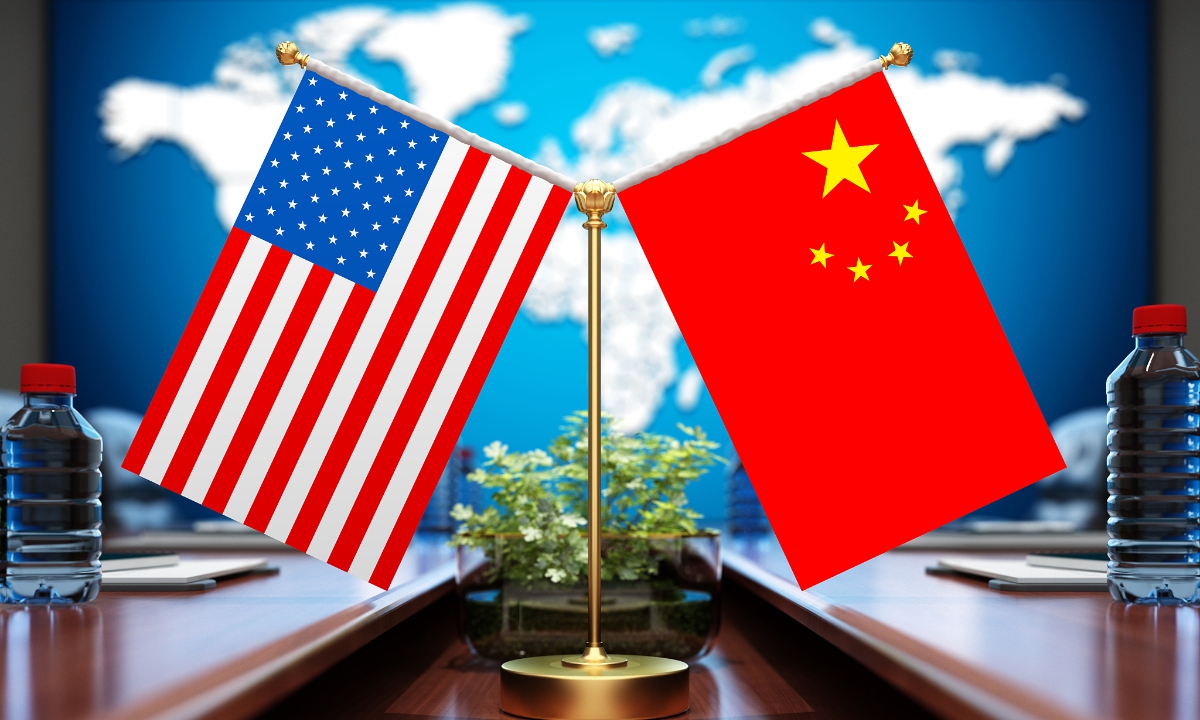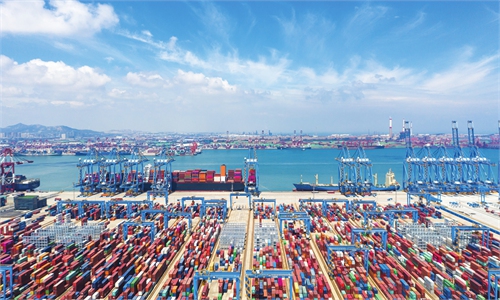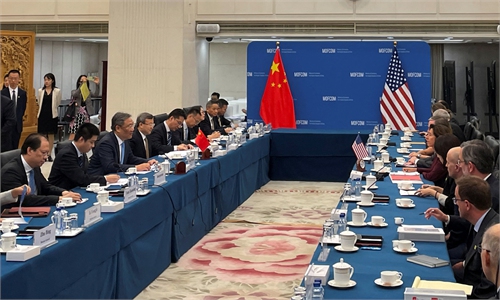China-US trade drops 8.7% in the first eight months, due to US 'decoupling' and consumption slowdown

China US Photo:VCG
Trade between the world's two largest economies continues to tumble as broadly expected, with bilateral trade during the first eight months dropping 8.7 percent year-on-year, China's General Administration of Customs (GAC) said on Thursday.
The plunge in August marks consecutive months of decline that began at the start of the year, which is a clear indication of the lingering problems between the two countries' economic and trade relations.
Experts say the trend shows that the cornerstone role of the China-US economic and trade relationship is weakening amid intensified US 'decoupling' moves targeting China. Another contributing factor to the trade decline is the weak consumer demand in the US, which remains gloomy as the Biden administration failed to fully revive its economy.
Bilateral trade for the January-August period amounted to 3.05 trillion yuan ($420 billion), marking an 8.7 percent year-on-year decrease. This volume represents 11.2 percent of China's total foreign trade, positioning the US as China's third-largest trading partner, following the ASEAN and the EU.
Exports of Chinese goods to the US reached 2.27 trillion yuan, marking a decline of 11.7 percent in the first eight months, while imports reached 775.26 billion yuan, showing a growth of 1.6 percent. As a result, the trade surplus with the US stood at 1.5 trillion yuan, narrowing by 17.4 percent from the previous year.
In August alone, the bilateral trade stood at $57 billion dollars, up less than 4 percent from July's $54.3 billion, concluding the first eight months with an 8.7 percent decline.
The drop in exports is primarily attributed to weak consumer demand in the US, largely because the country's government has struggled to recover its economy from high inflation, Hu Qimu, the deputy secretary general of the digital real economies integration Forum 50, told the Global Times on Thursday.
While the decline in the first eight months narrowed compared to the first seven months, it reflects a continuous drop in bilateral trade, which has contracted for several consecutive months since the start of the year.
"The US' decoupling measures, including the tech war, have had a negative impact on the stability of China-US trade relations...such US unilateralism has eroded market confidence as Chinese companies diversify their businesses into alternative and more reliable markets," Zhou Mi, a senior research fellow with the Chinese Academy of International Trade and Economic Cooperation, told the Global Times on Thursday.
Other factors such as the tariffs imposed on Chinese goods during the Trump administration continued to damage bilateral trade. "Because of the extra tariffs, which are still in place, this will ultimately be passed on to American consumers," said Zhou.
Since the beginning of this year, many American corporate executives have visited China, expressing their enthusiasm and determination to strengthen cooperation with China and increase investment in the Chinese market. They have also made it clear that they are against the US' "decoupling" from China.
The US Commerce Secretary Gina Raimondo's visit to China underscored the differing opinions within the US, regarding the improvement of economic and trade relations with China.
During Raimondo's visit, both China and the US agreed to establish a special communication channel between trade officials to enhance communication and dialogue.
At the regular press conference on August 31, Commerce Ministry spokesperson Shu Jueting said that China-US economic and trade relations are not only crucial for both countries but also have a global impact, drawing widespread attention from all parties.
Bilateral trade between the two nations for September is unlikely to improve, with the dim outlook for US retail sector dampening expectations for a robust holiday spending spree, experts said.
Whether Raimondo's recent visit to China will change the sluggish trend of the China-US trade in the second half of this year depends on specific actions from the US. If the US does not take concrete actions and meet China halfway, positive results may not be forthcoming and prior high expectations following her visit may quickly cool down, Zhou said.
Global Times


